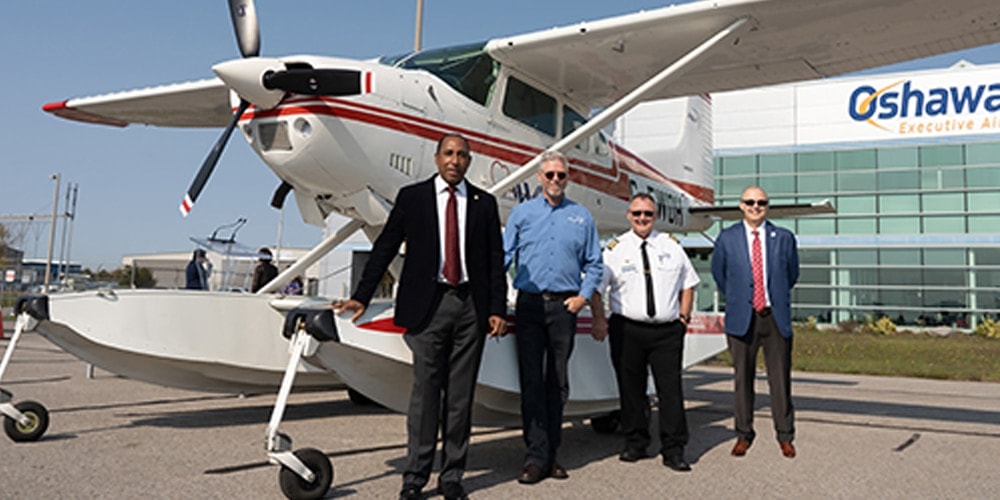
When Thanksgiving in Canada was celebrated as usual this October, Seventh-day Adventists in the province of Ontario said they had a lot to be thankful for, despite a challenging 2020. One of the biggest blessings is that a Cessna 185 aircraft obtained in collaboration with Adventist World Aviation (AWA) is finally ready for service.
The plane, which arrived at Oshawa Executive Airport in Oshawa, Ontario, from the U.S., represents a new chapter in Ontario Adventist history, according to leaders. The Cessna was acquired to support the health and humanitarian needs of remote and isolated Indigenous communities in Northwestern Ontario. In public health reports, they are disproportionately represented as being at the highest risk for lifestyle diseases.
On Friday, October 9, 2020, leaders held a dedication ceremony for the Cessna and its mission at the Oshawa Executive Airport. Participants included Ontario Seventh-day Adventist Church president Mansfield Edwards, executive secretary Jakov Bibulovic, and Seventh-day Adventist Church of Canada president Mark Johnson. Ray Young, AWA’s Canada project manager/global operations manager, and Brian Koldyk, the Cessna’s pilot/manager, also attended. A small gathering of Ontario Conference of the Seventh-day Adventist Church directors, support staff, some of their family members, and a few other supporters were present, adhering to health and safety protocols put in place during the COVID-19 pandemic.
“As Ontario Adventist leaders, we became aware of the dismal public health records for Indigenous communities in the North six or seven years ago,” shared Edwards. “Their rates of suicide, cancer, and circulatory and other diseases far exceeded the average in Ontario; their lifespans were also four to five years shorter than the average.”
Edwards explained that Adventist leaders found that situation unacceptable and unfair to those communities and decided to do something about it. “The anticipation is that this project will facilitate health training, agricultural projects, and other humanitarian services,” he said.
The original version of this story was posted on the North American Division news site.